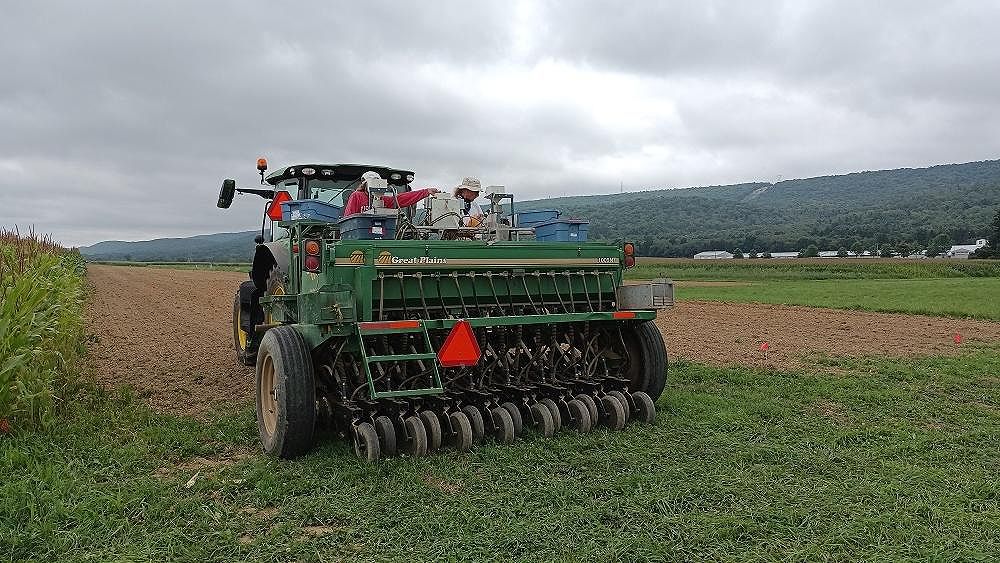A research project at Penn State aims to enhance soil health and control weeds in organic farming through the use of perennial species and rotations. The study will provide valuable insights and strategies for sustainable agriculture.
Enhancing Soil Health and Weed Suppression in Organic Farming
A new research project at Penn State’s College of Agricultural Sciences aims to improve soil health and weed suppression in organic farming. Led by an experienced organic farming expert, this project seeks to provide valuable insights and strategies for sustainable agriculture.

( Credit to: Psu )
Traditionally, tillage has been used to control weeds in organic systems, but it can disrupt the soil and degrade its long-term fertility. The team aims to address this challenge by exploring methods to enhance soil health and control weeds through the use of perennial species and rotations.
Selecting Perennial Species and Rotations for Weed Suppression and Soil Health
The research team will compare the effects of single species and mixtures of perennials on weed growth while assessing soil physical and biological health. By selecting the right perennial species and designing appropriate rotations, farmers can not only suppress weeds but also improve soil health and profitability.
Furthermore, the potential benefits of rotating perennial hay crops with annual cash crops will be explored. Planting perennial crops, which are cut for hay multiple times over two years or more, can disrupt weed life cycles and reduce weed seed populations in the soil. The lack of disturbance under perennials allows microorganisms to build organic matter and enhance soil fertility.
Collaborating with Farmers for Practical Implementation
Throughout the project, the research team will regularly meet with farmers to share research results and discuss experiences with weed management, selecting perennial species, and designing rotations. This collaboration will ensure that the research findings are practical and applicable to real-world farming situations.
By incorporating farmers’ perspectives and knowledge, the project aims to provide organic farmers with effective strategies to manage weeds, improve soil health, and enhance overall farm profitability.
Promoting Environmentally Friendly Farming Practices
By investigating methods to enhance soil health and suppress weeds in organic farming, this research project has the potential to contribute to the broader goal of promoting environmentally friendly farming practices. The findings will not only benefit organic farmers but also support the sustainable and responsible use of agricultural land.
Through the integration of perennial species and rotations, organic farmers can reduce their reliance on tillage, minimize soil disruption, and improve long-term soil fertility. This research project paves the way for a more sustainable and ecologically conscious approach to organic farming.
